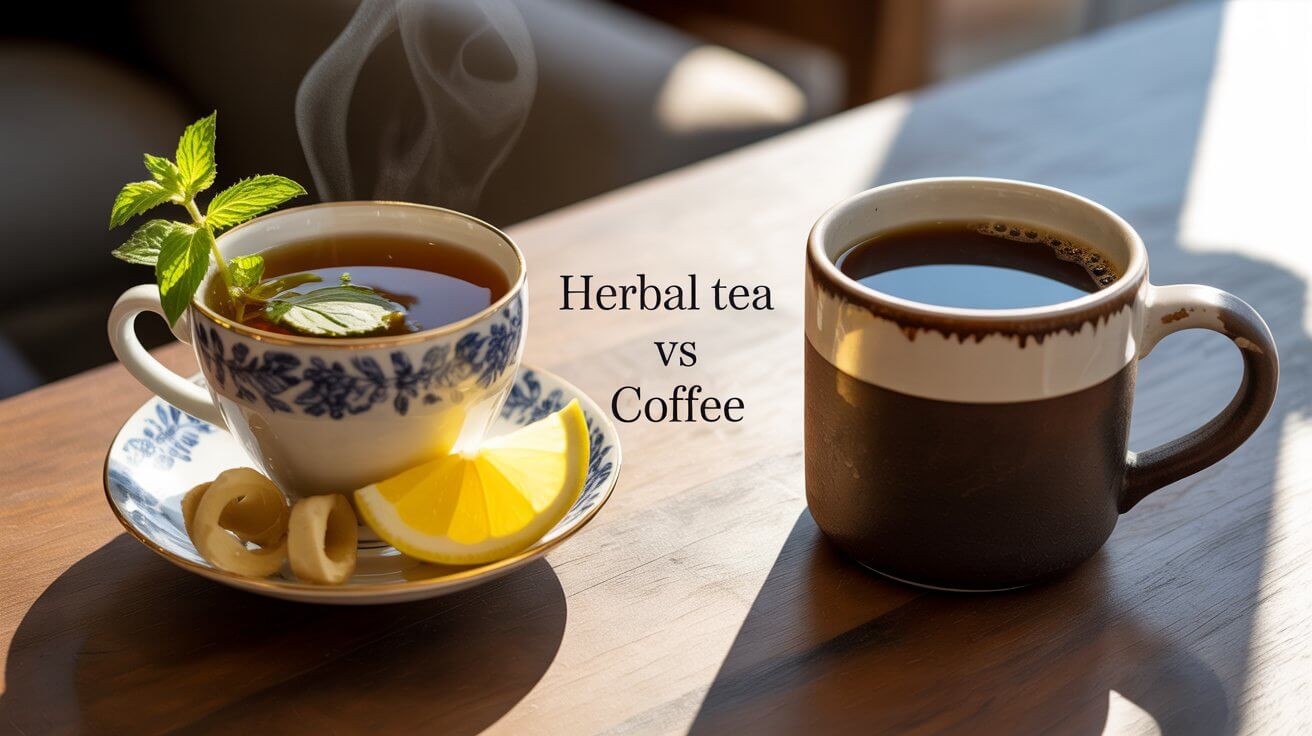For most people, the day starts with a warm cup of either coffee or tea two of the most beloved drinks on the planet. Both can boost alertness, improve focus, and even support fat metabolism. But when it comes to sustained energy and metabolic health without the afternoon crash, which is better: herbal tea or coffee?
Let’s break down the science behind each, their effects on metabolism, and why one might be a smarter choice for daily wellness.
Understanding Metabolism and Why It Matters
Metabolism is your body’s process of converting food into energy. The higher your basal metabolic rate (BMR), the more calories you burn even while resting. Certain compounds like caffeine, catechins, and antioxidants can naturally stimulate this process making both coffee and tea valuable metabolism allies.
However, their impact on your body, energy levels, and hormone balance differs significantly.
Herbal Tea and Metabolism: A Gentle but Powerful Boost
Herbal teas are made from natural herbs, spices, flowers, and roots not from traditional tea leaves. They can be caffeine-free or lightly caffeinated, making them ideal for people who want steady energy without jitters or crashes.
Key Metabolism-Boosting Herbal Teas
-
Green tea: Rich in EGCG catechins that enhance fat oxidation and calorie burning.
-
Ginger tea: Stimulates thermogenesis (heat production) to burn more calories naturally.
-
Yerba mate: Provides a mild caffeine boost with compounds that may prevent new fat cell formation.
-
Peppermint & rooibos tea: Support digestion, reduce bloating, and keep energy stable without caffeine.
One of the biggest advantages of herbal tea is sustained energy it boosts metabolism gently without shocking the nervous system.
For those focused on natural fat burning and digestive balance, All Day Slimming Tea offers a perfect blend of green tea, herbs, and botanicals designed for steady energy, appetite control, and detox support all without caffeine crashes.
Coffee and Metabolism: Quick Boost, Faster Drop
Coffee’s main advantage is its high caffeine content, which can spike metabolism and increase fat oxidation within minutes. It’s excellent for short-term alertness and pre-workout energy.
Benefits of Coffee
-
Increases calorie burn: Caffeine can raise metabolic rate for a few hours.
-
Improves exercise performance: Enhances endurance and fat utilization during workouts.
-
Elevates focus and alertness: Great for productivity when consumed moderately.
However, the effects are short-lived, and regular drinkers may develop tolerance, needing more coffee for the same energy. Overconsumption can also trigger jitters, dehydration, or anxiety, which disrupt overall wellness.
Why the “Coffee Crash” Happens
That mid-day slump after coffee is caused by how caffeine works in your brain. It blocks adenosine, a chemical that promotes relaxation. Once the caffeine wears off, adenosine floods back causing sudden fatigue.
Caffeine also affects cortisol (the stress hormone) and blood sugar balance, which can result in mood swings or energy dips later in the day.
Herbal teas, with their antioxidant balance and lower caffeine levels, help maintain smoother energy levels and better hydration no crash included.
Herbal Tea vs Coffee: Which Sustains Energy Better?
If your goal is stable metabolism and long-lasting energy, herbal tea clearly wins. While coffee offers a strong kick, herbal teas like green, ginger, or rooibos provide consistent support for both energy and digestion key factors in healthy weight management.
Many wellness experts now recommend replacing one or more daily coffees with herbal blends to reduce dependence and improve gut health.
A great example is All Day Slimming Tea, which combines metabolism-boosting herbs, gentle detox ingredients, and antioxidants for sustained fat burning, better digestion, and steady energy without the caffeine rollercoaster.
Smart Consumption Tips
✔ Balance both drinks: Enjoy coffee in the morning for focus and switch to herbal tea after lunch.
✔ Stay hydrated: Always pair caffeinated drinks with water.
✔ Skip excess sugar or cream: These slow metabolism and add empty calories.
✔ Choose organic blends: High-quality herbs and clean sourcing maximize benefits.
Final Verdict
Both herbal tea and coffee can enhance metabolism, but they work differently.
-
Coffee gives you a fast, temporary boost, ideal for mornings or workouts.
-
Herbal tea offers gentle, long-lasting energy, supports digestion, and avoids energy crashes.
If you want to boost metabolism naturally and maintain steady energy all day, herbal tea especially balanced blends like All Day Slimming Tea is the smarter, more sustainable choice for 2025 wellness routines.


Leave a Reply